 BOOKS
BOOKS « In Which We Count Down The 100 Greatest Science Fiction or Fantasy Novels of All Time »
 Monday, January 18, 2010 at 9:30AM
Monday, January 18, 2010 at 9:30AM  john harris The 100 Greatest SFF Novels of All Time
john harris The 100 Greatest SFF Novels of All Time
by ALEX CARNEVALE
What to read? It is a question asked mostly by women, who comprise the majority of America's reading public. Males make up some teensy other part. Either sex is challenged by a lack of a path through difficult material. It is difficult to know what is best. Although many have made a distinction between the fantasy and science fiction fields, I see no reason to arbitrary draw such a lien. The novels I find I most enjoy straddle the boundaries of the two, which is not to say that hard science fiction and pure fantasy don't retain their pleasures, and many books characterized at such found their way to this list.
At the nexus of the two genres is where the human imagination begins to reveal frightful and hopeful things about our own society. Sometimes I will come across someone reading what looks to me like a really boring book; e.g. anything by F. Scott Fitzgerald or James Patterson or Bill Bryson. Instead look to the vast store of cheap entertainment found in these immemorial classics of the page:

100. The Word For World Is Forest by Ursula K. LeGuin
An extraordinary powerful novel inspired by Vietnam in LeGuin's Hainish series, where one planet gives the gift of interstellar travel to the universe.
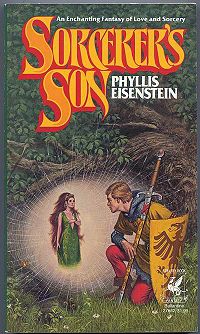
99. Sorcerer's Son by Phyllis Eisenstein
An original fantasy with the crucial grasp of how to make magic entertaining and plausible, not silly and random. Castles and sorcerers were never so deftly done.

98. Beggars in Spain by Nancy Kress
Kress is in true command in her short fiction, but this was her memorable attempt to capture how our society might change and still endure.
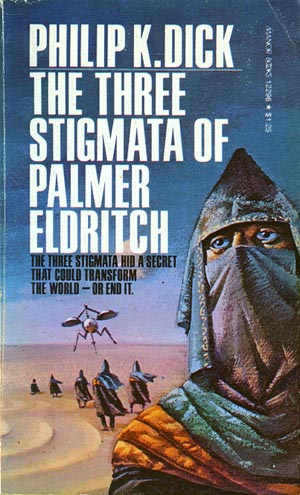
97. The Three Stigmata of Palmer Eldritch
One of his more well-thought out plots with interesting commentary on religion and sacrifice.

96. Snow Crash by Neal Stephenson
Incredibly entertaining and knowing about all sort of aspects of life, some of which I'd never even thought of before.
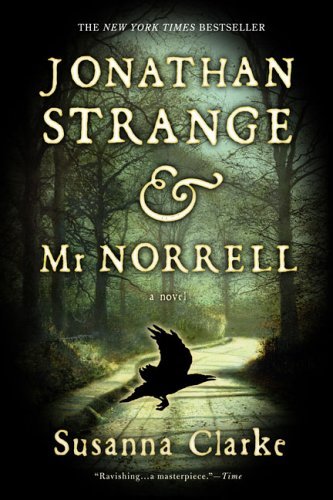
95. Jonathan Strange and Mr. Norrell by Susanna Clarke
An out-of-nowhere smash with rich detail.
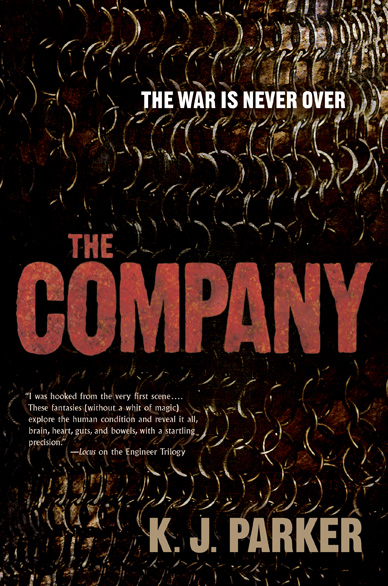
94. The Company by K.J. Parker
Parker's been one of the most exciting new writers to appear in the field. The Company is the best thing written about the meaning and import of war in two decades.
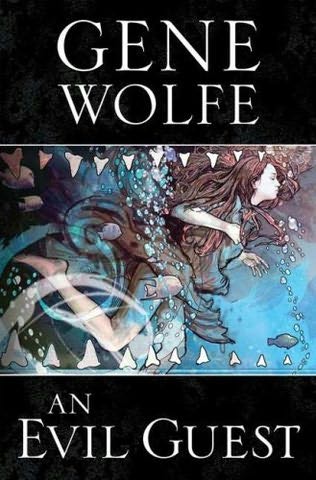
93. An Evil Guest by Gene Wolfe
Wolfe's inspired memoriam on Karl Rove, the Republican party, and the politics of the future. An insanely complex and deep science fiction story lurks below a Lovecraftian blend of Christianity and atheism. Easily the best book of 2008.
92. Jurassic Park by Michael Crichton
This list is also about pure readability — these books should flow easily into your subconscious, hopefully inhabiting your dreams. Park did more than that; it inspired an entire generation of fossile hunters, and it did it with a gripping adventure story that was also a pure morality play to the very last. Every time the story is told, we ask ourselves what to do with these beasts out of time? No answer forthcomes.
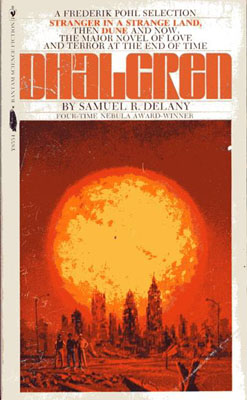
91. Dhalgren by Samuel Delany
An insane narrator with a lot of time.

90. Camp Concentration by Thomas Disch
Disch killed himself, a harsh end to one of SF's great cult heroes. Camp Concentration is a novel about prisons real and imagined, and its subtlety is convincingly rewarding in comparison to other novels that approach the same. Kafka-inspired, it reminds one of the master. What greater compliment is there?

89. Swordspoint by Ellen Kushner
Sly, understated, and poignantly delivered, Kushner wrote an incredible novel near the tail end of the 1980s. I never really cared for the sequel, but the original should be paired with the protagonist's origin story that she wrote last year and rereleased as one volume.
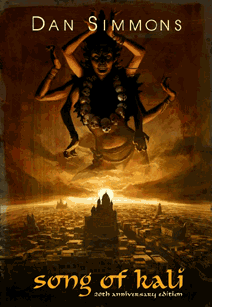
88. Song of Kali by Dan Simmons
As horror novels go, this one's relatively simple. Like Simmons' brilliant retelling of the death of Charles Dickens in Drood, this isn't all that it appears. Simmons is a preternaturally talented genius.
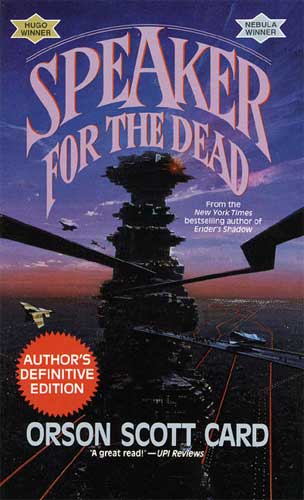
87. Speaker for the Dead by Orson Scott Card
Some call Speaker a sequel to Ender's Game, but the books are vastly different. Here is larger scope, greater torment. Xenocide followed, a worthy sequel before the series grew inevitably stale without a common element or quest. Card would remedy that inefficiency with the Alvin Maker books, his shot at creating an American fantasy.

86. A Canticle for Leibowitz by Walter Miller
The post-apocalyptic theme is so dumb and I never really liked it until I read Walter Miller's version.
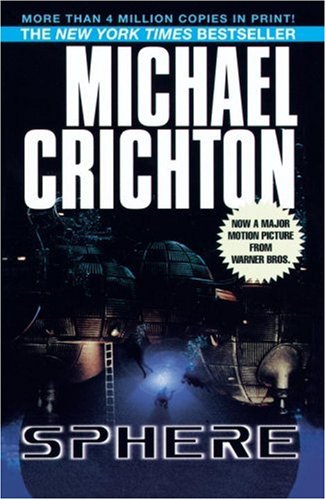
85. Sphere by Michael Crichton
The slightly better book, Sphere had a really strange Barry Levinson movie. It's basically a sub movie recast as a alien movie recast as a psychological fantasy. I have always found its claustrophobic environment enhancing. Crichton's remaking of adventure novels with science fiction was prescient.
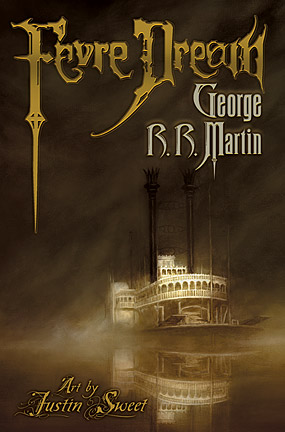
84. Fevre Dream by George R.R. Martin
The quintessential vampire story turned on its head. GRRM sets his vampire mythos in the legends of the American South, and essentially condemns slavery and blood-drinking as different but the same. A masterful treatment of the Dracula theme.
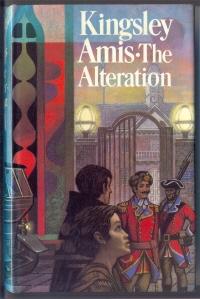
83. The Alteration by Kingsley Amis
Amis' disturbing vision of England without the Reformation.
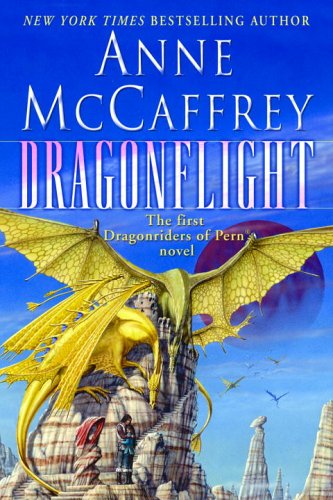
82. The Dragonriders of Pern by Anne McCaffrey
In this distinguished and wildly successful stint at world-building, McCaffrey built a fantasy of extreme and exciting possibilities that could capably consider almost any topic.
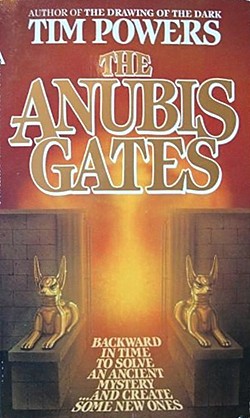
81. The Anubis Gates by Tim Powers
Time travel stories are uniformly bad except when they aren't.
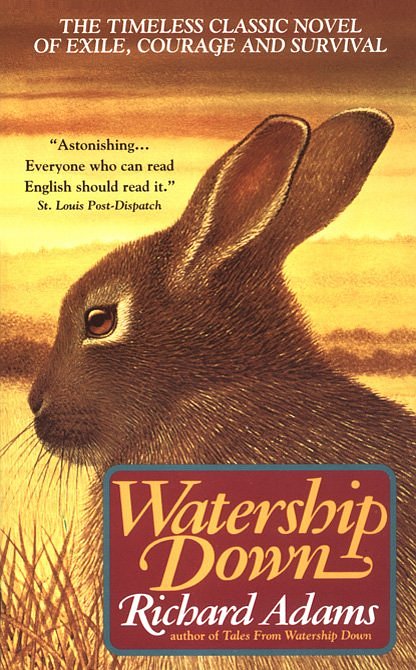
80. Watership Down by Richard Adams
An astonishing novel of anecdotal ecology, the best book ever written from the perspective of the animal.

79. Griffin's Egg by Michael Swanwick
If man evolves and no longer is man, what's left? Swanwick's virtues have been praised recently in these pages.

78. Altered Carbon by Richard K. Morgan
Supreme inheritor of the noir sensibility, Morgan's chilling novel sets a murder mystery in a near unrecognizable version of future Earth.

77. Free Live Free by Gene Wolfe
A waystation for indigents in modern-day Chicago, a time-travel story with balls and depth. Wolfe's haunting and miraculous horror novel is more unnerving that any Eli Roth movie.

76. Rendezvous with Rama by Arthur C. Clarke
Clarke was a decent scribe, but most of his work is a bit on the clumsy side. Not so with Rama, a scattered exploration of how space might fare put in close context with man.

75. Ringworld by Larry Niven
A wonderful out-of-the-box fantasy and introduction to Niven's Known Space universe.
74. Schismatrix by Bruce Sterling
A talented short story writer, Sterling created the perfect collection of this transcendant material with Schismatrix Plus.

73. Old Man's War by John Scalzi
The best science fiction can offer is some concrete re-imagining of what will actually become of us. In the world of Old Man's War, Scalzi consistently poses the bitter questions, and answers them with even tougher ones. By the time he's rehashing Heinlein's usual space colony plot in The Last Colony you feel more bowled over than ever.
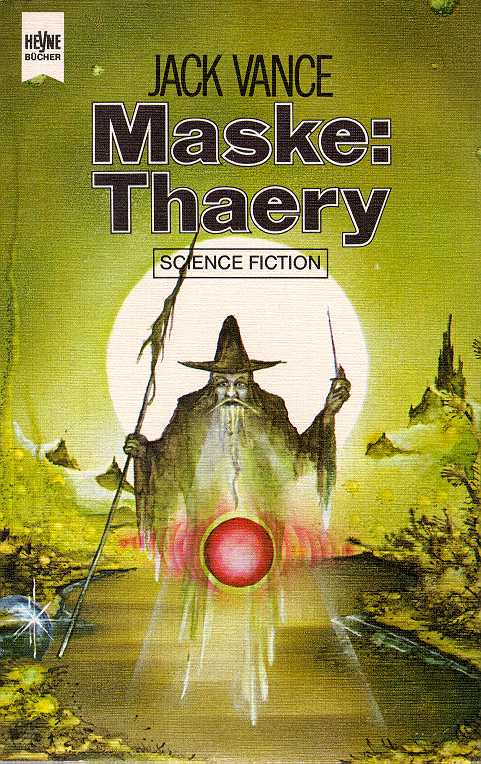
72. Maske: Thaery by Jack Vance
Vance's flawless bildungsroman takes up eminent domain in the context of a spy story and moving clash of cultures. A phenomenal example of how to write serious but simple fantasy.
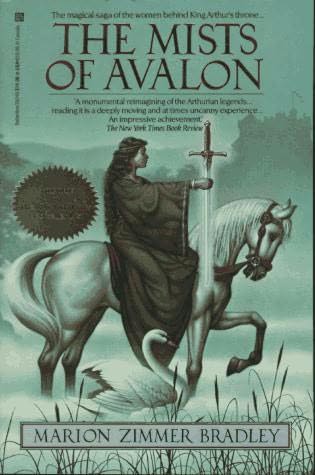
71. The Mists of Avalon by Marion Zimmer Bradley
First and foremost a telling of one of the most intriguing human myths in a very fun way.
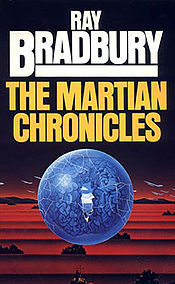
70. The Martian Chronicles by Ray Bradbury
Still feels very cinematic if not very edgy. Bradbury's future history is always fun to relive.
69. Flow My Tears The Policeman Said by Philip K. Dick
Almost everything written about future America is dwarfed by Dick's dystopia. It has now become a SF cliché, but Dick remakes it with thought and verve in this book and the 15th ranked book on this list.

68. The Gods Themselves by Isaac Asimov
Asimov was a determined technician and an inspired historian. This is a great example of his ability to take a familiar theme and completely flip it on its head.
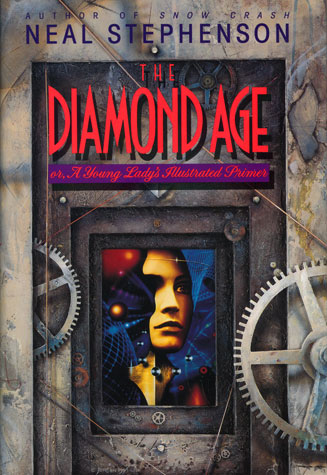
67. The Diamond Age by Neal Stephenson
It is something extraordinary to write with real feeling about places, people and ideas when most of them are invented. Stephenson's extraordinary perceptiveness is the key to this steampunk fantasy, and the plaudits of his readers are his true reward.
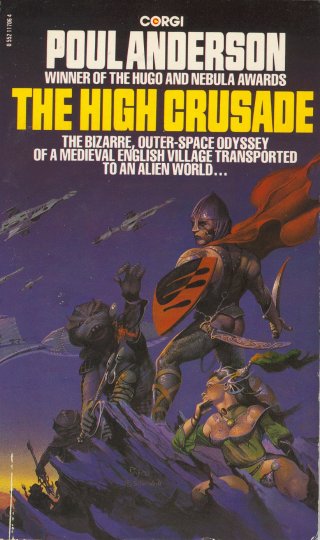
66. The High Crusade by Poul Anderson
We always imagine that human cultures that preceded us wouldn't fare well against starfaring conquerors. Anderson undermines this point of view by casting the early English amongst the stars. The English villager is a hearty sort, but Anderson's grasp of what makes alien cultures 'alien' is pitch-perfect. A hilarious book.
65. A Song for Lya by George R.R. Martin
A beautiful story about our common empathy for others, life as a kind of parasite.

64. At the Mountains of Madness by H.P. Lovecraft
How to come at Lovecraft but from an angle? Here was one of predictive sensibilities and great zest for the occult. At the Mountains is among his finest work, but there is so much else to recommend.
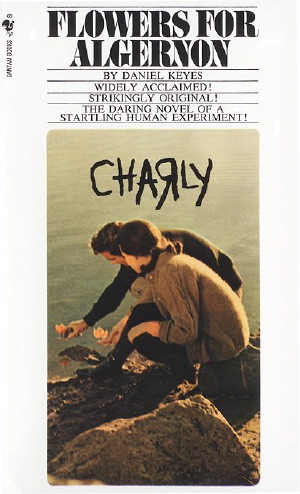
63. Flowers for Algernon by Daniel Keyes
When we imbue ourselves with recognition for nonhuman intelligences, we enrich the closeness between all peoples of difference. This message floats about in a terrific but sad novel.
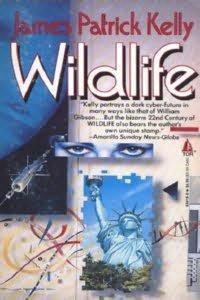
62. Wildlife by James Patrick Kelly
A pitch-perfect classic of the future. Imagine Requiem of a Dream crossed with Hunter S. Thompson's most fevered imaginings. A rewardingly sad story.

61. The Book of Knights by Yves Maynard
The most time-honored standard in fantasy fiction redefined for a new era. A most moral adventure.
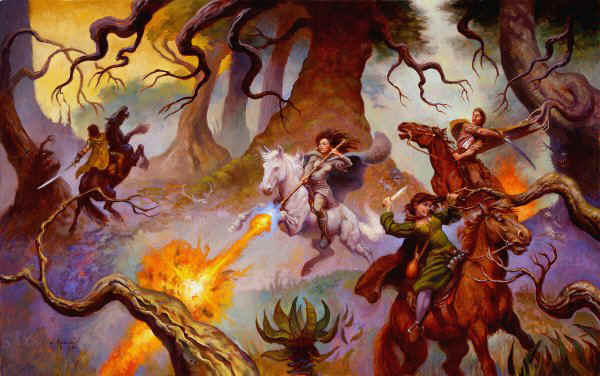
60. The Wheel of Time by Robert Jordan
No knock on Jordan. His series is long and impressive, and full of pleasant malefactions and strange echoes of America's military history. Its characters are numerous and sometimes difficult to track, but the rewards the story provides in the moments it strains to achieve make the journey worthwhile.
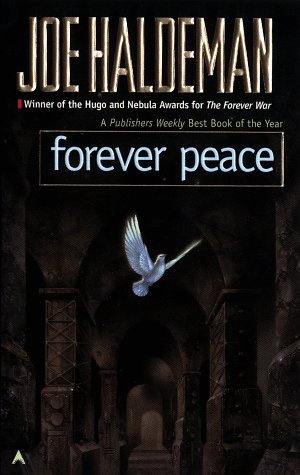
59. Forever Peace by Joe Haldeman
The advancement of technology will soon consume our experience of everything, especially how we act as a species. Haldeman describes this triusm and watches the inevitable new humanity emerge from the wreckage of an action story.

58. Nightwings by Robert Silverberg
A novel in three discrete parts, Silverberg's masterpiece of science fantasy imagines a dessicated Earth vividly.
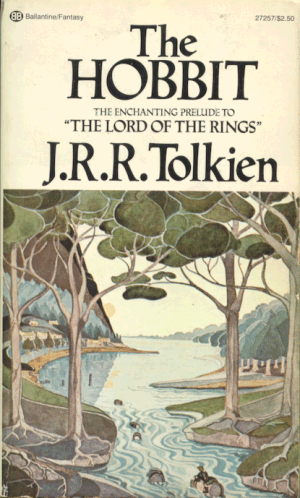
57. The Hobbit by J.R.R. Tolkien
A small little tale of sheer perfection, Bilbo was such a memorable and worthy person that it felt reassuring to get to know him in such a fashion. Therefore handing off his tale to Frodo seem a difficult and preposterous transition, until you figured out it was all about man's love for man.
56. Cat's Cradle by Kurt Vonnegut
The doomsday book, the one about death in every molecule of life. Vonnegut writes at his highest level here.

55. Gravity's Rainbow by Thomas Pynchon
This was his best effort at describing a philosophy in terms of a world.

54. The Book of the Short Sun by Gene Wolfe
Following right after his Book of the Long Sun, this effort takes us to dual planets of Blue and Green, where inhumani stalk people and machines, and Horn tries to unite his worlds.

53. The Forever War by Joe Haldeman
His reimagining of his experience in Vietnam as space conquest rendered bloody and mind-numbing. The novella inside, the tale of the soldier's return to a society he no longer recognizes, is a masterpiece in itself, but Haldeman is also interested in turning over in his mind the harshest parts of a military life.
52. Foundation by Isaac Asimov
He imagined civilizations across the stars and an Encyclopaedia Galactica.

51. The Wizard of Earthsea by Ursula K. LeGuin
A magical fantasy epic, LeGuin wrote slightly down to a younger reader, and she found a new and growing audience to appreciate her impeccable grasp of how individuals interpret and reacts to their civilizations.

50. The Wizard Knight by Gene Wolfe
Wolfe challenged himself by taking the most traditional theme and flipping it around so many times. As effortless as magic properly done.

49. The Fountainhead by Ayn Rand
Rand took as subject the plight of the individual in a society that attempted to squelch his purpose and initiative at every turn. Through the story of Howard Roark, we begin to appreciate and see for the first time the visible constraints on ourselves that were invisible before. Among the most widely read books ever written.
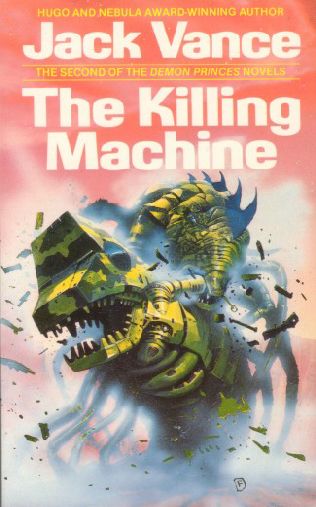
48. The Demon Princes by Jack Vance
The most entertaining discourse on the subject of revenge and justice short of Kill Bill. Relentless, interplanetary fun along the Gaean Reach with Kirth Gersen and the women he loves and doesn't love. So funny you're still laughing when you start crying, and probably vice versa. Ranks with Vance's finest cultural, social, and moral investigations.

47. Ender's Game by Orson Scott Card
The simplest and oldest of science fiction conceits: a boy is raised at war to save his people.

46. The Baroque Cycle by Neal Stephenson
A marvelous explanation of world history as pieces of a larger puzzle. Incredibly erudite and incidentally educational.
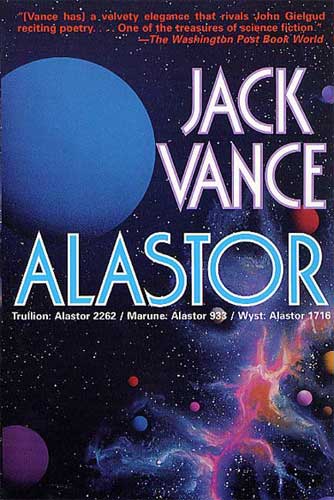
45. Alastor by Jack Vance
Three vast and inspiring novels on the theme of utopia. The first has an astonishing setting and Vance's favorite invented game: hussade. The second of the two is a comedy of manners to set you up for the last, Wyst, which is every bit as moving and disturbing as the best utopian fiction, and with a more satisfying result.
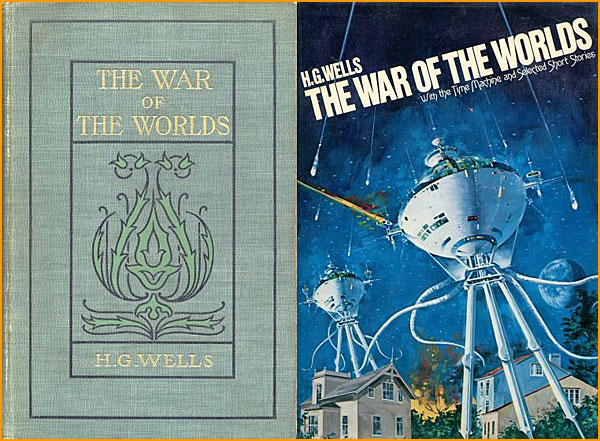
44. The War of the Worlds by H.G. Wells
Invasion is a classic human story, because of the likelihood that it will happen in our lifetime.

43. Flatland by Edwin Abbott
Math and science are close bedfellows, but it is hard to inscribe such arcane pleasures in the guise of fiction. Abbott solved that difficult riddle marvelously.

42. Farmer in the Sky by Robert Heinlein
His only novel to take place on Ganymede, Jupiter's Moon. It presents incredible understanding of every subject it approaches, first and foremost that of a child growing up into an adult.

41. A Scanner Darkly by Philip K. Dick
The drug culture never had a better advocate and enemy than Philip K. Dick. Great movie, too.
40. Animal Farm by George Orwell
Above all, a very funny book about the intransigence of people to live correctly.

39. The Hitchhiker's Guide to the Galaxy by Douglas Adams
An incomparable marvel of high and low humor, left and right galaxies. The sequels didn't have as much promise, but Adams always clued you in on the joke.
38. Slaughterhouse-Five by Kurt Vonnegut Jr.
His own novel about what men become in war. Very discursive for the time and full of knowing insights.
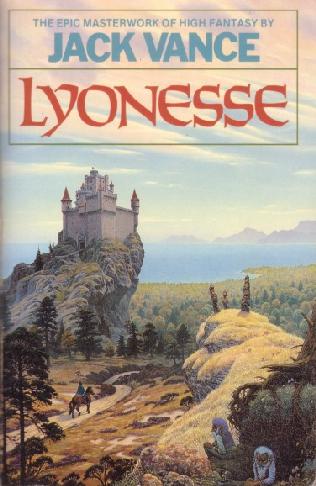
37. Lyonesse by Jack Vance
A hilarious and exciting fantasy set in the Elder Isles, which sank into the Atlantic Ocean. The series is enchanting beyond anything else in the genre. The middle of the first book provides a vicious shock unique to Vance's distinctive patterning of individuals.

36. Starship Troopers by Robert Heinlein
The first military adventure to grip us by our lapels and inform on exactly what war was, why it was waged, and how to go about waging it without losing your soul. As always, the enemy must be nameless and unthinking, until the enemy is no longer as threatening as the thought of continued war.

35. True Names by Vernor Vinge
Vinge's story basically described what would happen when diverse intelligence connected with each other on the internet. He was right about almost everything, and no one had really thought of this before, so the story has retained a certain flair even though Vinge was still improving as a writer of fiction.
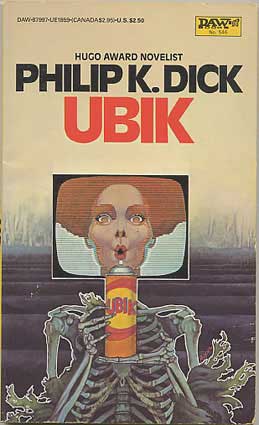
34. Ubik by Philip K. Dick
Time travel has gotten so stale that J.J. Abrams plans to use it on all of his TV shows. Dick shows J.J. how it's really done, with plenty of personalities and jawdropping moments in time and space. He never had quite this much fun again.

33. The Hyperion Cantos by Dan Simmons
Man's conquest of the stars is inevitable; Simmons detailed some of the potential complexities with such an arrangement. Hyperion is a wondrous and incantatory setting for some of the best words per entertainment science fiction has ever seen. A wild and amazing ride.
32. Citizen of the Galaxy by Robert Heinlein
Besides its many virtues as a narrative, it is among the finest pieces of anti-slavery prose written by a white man. Heinlein's concerns are many: the rise of poverty, the existence of nationalism and prejudice, the vagaries of wealth. He concentrates them all in this modest tale about a slave bought at an auction by a particularly free-thinking individual, and raised across the stars.

31. A Wrinkle in Time by Madeleine L'Engle
This was a book for children? I still remember the first confusing words of A Wrinkle in Time, proof that I was not alone in the universe. How they teach this book to young people is beyond me. Even now, mysteries arise and emerge out of each tesseract made real. A book still ahead of its time.
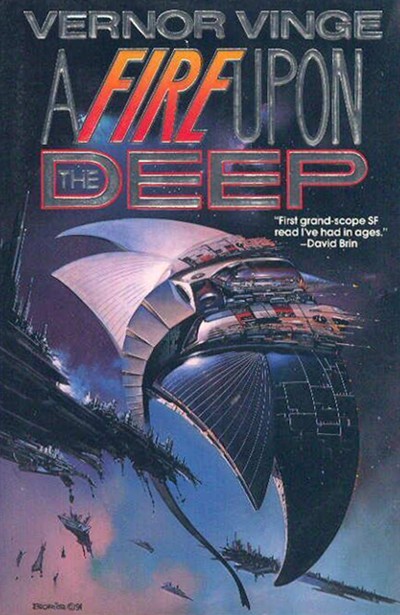
30. A Fire Upon The Deep by Vernor Vinge
Both an immensely moving epic and a hilarious commentary on the primitive stages of the Internet, Vinge created two amazing alien spieces and never lost track of the personal in a world where gods appear out of the Beyond.
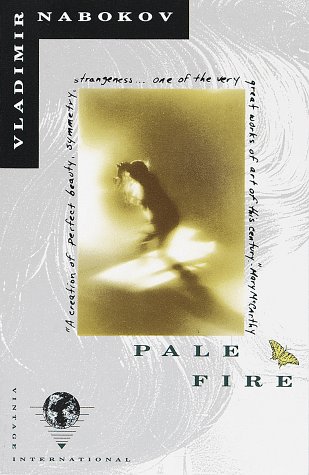
29. Pale Fire by Vladimir Nabokov
He was just never bad, and here he was at his immortal best with an examination of the interconnections between all that is and will be. A true classic with fantasy undertones. Like most masterpieces, its straddling of genre is part of the charm.
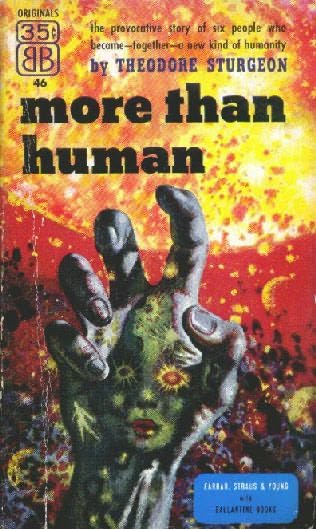
28. More Than Human by Theodore Sturgeon
What happens to homo sapiens after we die on the inevitable altar of natural selection?
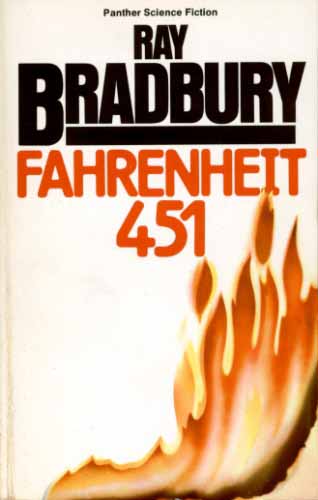
27. Fahrenheit 451 by Ray Bradbury
The idea that anyone who destroys knowledge is a sinister creature is directly related to this novel, and it has guided many estate lawyers.

26. 1984 by George Orwell
As a ripping good read, it's slow and methodical in parts. Its ideas are so clearly subsumed within our culture that it seems funny to think that really this was a utopian fantasy of serious horror. If this book didn't exist, we'd still be waiting for someone to write it.

25. I Am Legend by Richard Matheson
Matheson's version of the vampire apocalypse, it is a far deeper mix in print, and funny, too.
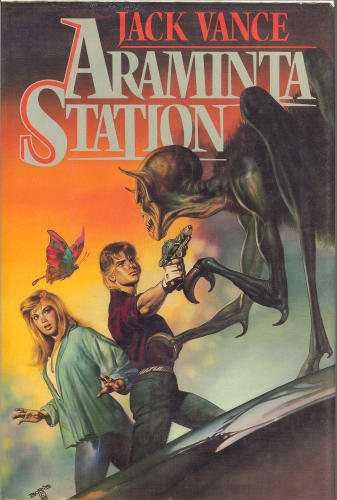
24. The Cadwal Chronicles by Jack Vance
Like much of Vance's work, its ostensible subject is the ownership of everything. Cadwell is a secluded planet as nature observatory where a class of elites dominates the undermen Yips. In three volumes it approaches titanic questions philosophical and strategic, and dispenses with them for the fun of revenge and the purity of moral action. Wayness Tamm is among fiction's great heroines.
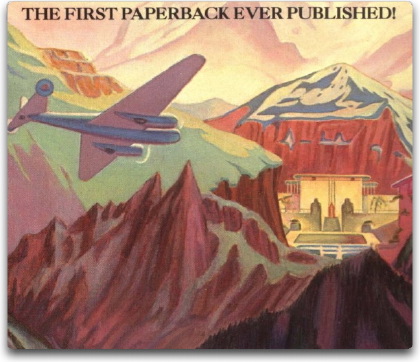 23. Lost Horizon by James Hilton
23. Lost Horizon by James Hilton
The gorgeous, austere fantasy classic that inspired a generation. Lost Horizon is about coming to terms with the limits of your own life.
22. Alice in Wonderland by Lewis Carroll
So much of what we think is unusual flows from this book.

21. The Wonderful Wizard of Oz by L. Frank Baum
Fantasy as a triumph granted to us upon crossing of worlds.
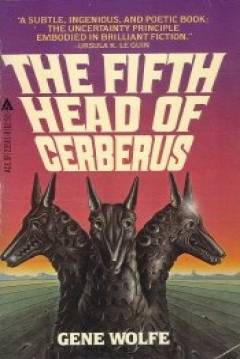
20. The Fifth Head of Cerebus by Gene Wolfe
The greatest novella ever written in any genre, this is Wolfe's tribute to Proust, and these two crazy planets are a lot more interesting than upper-caste France. Also one of the great mysteries written in English. Thank God for Gene Wolfe.
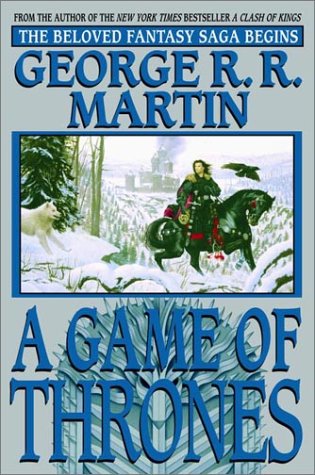
19. A Song of Ice And Fire by George R.R. Martin
With Martin 1100 pages into the fifth book, what better time to revisit a deep and complex epic than before its HBO premiere?
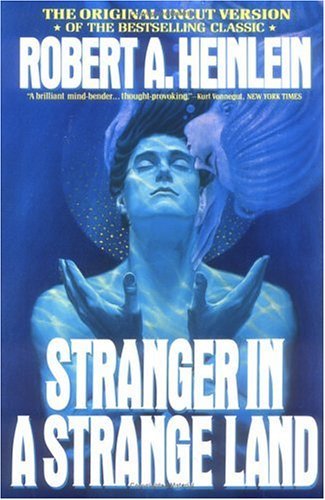
18. Stranger in a Strange Land by Robert Heinlein
The simplest science fiction story infused with the basic tenets of Heinlein's philosophy of free love. The best alien ever makes you want to taser E.T. until he stops his weird relationships with young boys.

17. The Fionavar Tapestry by Guy Gavriel Kay
Awe-inspiring scope that never falters or is intimidated by the wild fantasy. More real and telling about humanity than The Great Gatsby.
16. The Master and the Margarita by Mikhail Bulgakov
The finest non-Orwell repudation of communism packaged in a wild novel that rises above doctrine, creed, or power.

15. The Man in the High Castle by Philip K. Dick
His conceptually fascinating contradiction of Triumph of the Will. Only Dick could turn something so natural and simple into the darkest of mysteries.
14. All My Sins Remembered by Joe Haldeman
Most books have some things, but this book has everything. Haldeman's underappreciated masterpiece is begging to be a big budget film, but for now it's available whenever you want to leave this world, and go beyond it. The best presentation of mystery in the genre since Edgar Allen Poe.
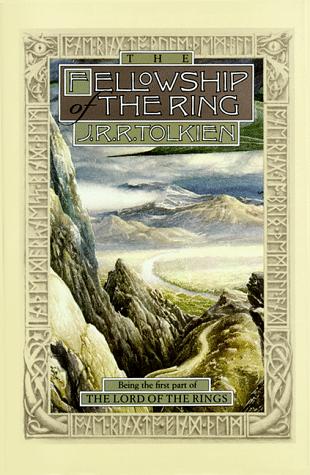
13. The Lord of the Rings by J.R.R. Tolkien
It has been the major influence of many horrible things, but also many wonderful things. Where it leans on frivolity and wishful thinking, it is forgiven. It's really hard to read these today with how far things have come, but an important effort at the time.
12. Planet of Adventure by Jack Vance
The greatest series of adventure novels ever written. Real thrills that come from Vance's immaculate ear, revolutionary style, and deftness with plot. The most fun you can have with books.

11. Dune by Frank Herbert
Why is this arcane tale of sand people such potent fodder? It is at once a brilliant retelling of the destruction of the Earth and a cipher for all our wants and deepest desires. Herbert's supreme achievement is a bit dated today, but still brilliantly structured and legendary.

10. A Clockwork Orange by Anthony Burgess
We've all seen the Kubrick movie, which captures this brand of madness better than most films. The subject of violence in our culture gets short shrift because artists opine against it constantly. Thus genre can encompass what traditional fiction cannot.

9. The Left Hand of Darkness by Ursula K. LeGuin
Her Hainish cycle is full of vastly different works, but the strange people of Winter are an unforgettable brew. LeGuin is the supreme master of how we belong to our cultures more than our institutions. Her descriptions of intercourse among the native peoples are among the most startling in all of history. Incredibly, she would go on to top this perfect novel.
8. The Book of the New Sun by Gene Wolfe
Jack Vance's Dying Earth was a comedy of errors; Severian's tale is a tragedy beyond measure. Wolfe basically rewrites Earth's languages and culture until they look unrecognizably familiar. Close to perfect as a series of four can get.

7. Brave New World by Aldous Huxley
The theme of utopia is never properly done for obvious reasons. Huxley built on other's shoulders to ask all the right questions. In doing so, he raised his subject matter above its usual weaknesses and infused it with a new point of view, the objective of any truly great piece of literature.

6. Frankenstein by Mary Shelley
She came first, and there was no better. Even today, Frankenstein is no more than a mere afternoon's reading, but it raises questions that never stop being summoned by the recesses of the modern mind. Maybe the only myth that truly matters.

5. Tigana by Guy Gavriel Kay
It is the hardened tale of revolution in a strange and sacred place. As far as contemporary fantasies go, it has to look up on no other. Awesome sorcery, staggering statesmanship, perfect action and characterization. A nearly perfect novel.
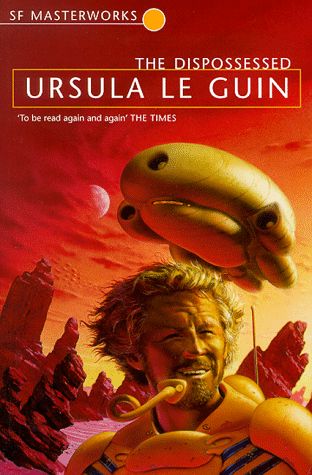
4. The Dispossessed by Ursula K. LeGuin
How do we live with each other without breaking our societies apart? LeGuin took the two sister planets concept to unbelievable heights. Shevek's tale is possibly the only one that matters, and I won't be shocked if it inspires a religion and saves us all at some point down the road.
3. The Dying Earth by Jack Vance
Vance picked up this world again in the early 1980s with the masterful Cugel's Saga and finished it off with Rhialto the Marvellous. Along with the original eponymous volume and quite easily the greatest fantasy sequence ever devised in The Eyes of the Overworld, these books provide everything of what we seek from literature: wry humour, great sorrow, masterful prose and dialogue, and intricately beautiful plotting.
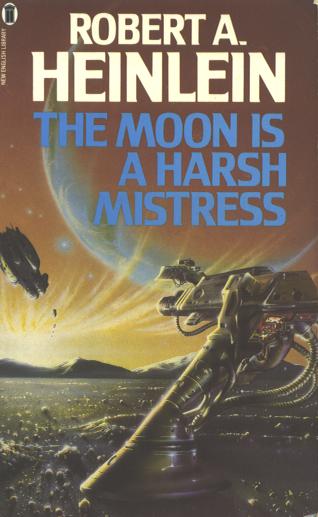
2. The Moon Is A Harsh Mistress by Robert Heinlein
Science fiction and fantasy have played roughly equal part in this list, but there is a fantasy element to Heinlein's ultimate masterpiece that rises above the rest. Heinlein imagines a world both breaktakingly real and manifestly impossible. He makes us care more deeply about unliving things that never existed than the people in our own lives. This is the import of fantasy. Then you have that the story of Mike and Wyoh and his friends builds on technology...geology...physics...politics...human rights. There is no subject that is not more enriched by this text's understanding of it.
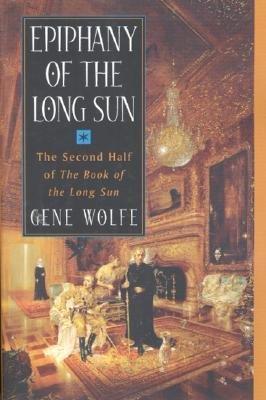
1. The Book of the Long Sun by Gene Wolfe
Gene Wolfe wrote these four novels in one incredible gasp. The series begins with the quiescent Nightside the Long Sun, where we are brought to Viron, the place of all our deepest hopes and desires. Like any great tale, it begins in the darkest poverty and ends in it. Three more books follow, each more entrancing and mystifying than the last. The Book of the Long Sun is really one novel, Wolfe's rewriting of the generation starship theme for modern readers. Wolfe is a Catholic — he converted when he married his wife — and his convictions are colorfully borne, yielding lessons for atheist and the most indoctrinated among us. Naturally, our protagonist is a man of considerable faith. Wolfe's imaginings are more real to me now than many actual events, managing to mercilessly strip ourselves of what we believe it is to be human until all that is left is our humanity.
Alex Carnevale is the editor of This Recording. He is a writer living in Manhattan, and he tumbls here.
It Is Best To Enjoy This Recording At Your Leisure































Reader Comments (299)
fun list but yeah so many great were left off. i agree adding stephenson over gibson is very odd, but at the same time i appreciate the individuality of your taste. still, leaving off neuromancer is egregious, particularly given this list is seen by all over the internets!!! i guess you didnt like the matri movies, eh?
and what about bester? burroughs? pangborn? lem? harlan freakin ellison? ha -- we could all go on and on i am sure! anyway i appreciate all the series books you read, the dune series aside, i dont go for most those, but now i am tempted so thanks. and as for those who are taking the rank order of the list so overly seriously...dont! just take inspiration to get reading!
22. Alice in Wonderland by Lewis Carroll
21. The Wonderful Wizard of Oz by L. Frank Baum
AHAHAHA! Thats reach, really =) Carrol was a genius, Baum just boring...
Tolkien is 13, Clarke in the ass, Sheckley is in the deep ass...
P.S. There is Valis???
Okay, lots of complaints, but I gotta chime in too. Way too much Vance!
Oh yeah, and we are
THE GORMENGHAST TRILOGY!!!!
Androids dream of electric sheep
I,robot
VALIS
Stand on Zanzibar
Anything by Bester
Lord of Light
Neuromancer
Solaris
Dying Inside
or
STAR MAKER BY OLAF STAPLEDON< READ IT AND BE BLOWN AWAY
Agree with the Crichton protest and *totally* agree re Alfred Bester. "The Stars My Destination" is not only one of the best, but also one of the stone *coolest* skiffy books ever written. You'd almost swear pharmaceuticals were involved, but what could Alfred have gotten his *hands* on in 1956?
I know there's no hope for guys like Patrick Tilley, even though the first two and a half books of The Amtrak Wars rock. Another no-hoper is Daniel Keys Moran. Lord knows he put the top in over the top, but still, stories like Armaggedon Blues, Emerald Eyes and especially The Long Run stay with the reader in ways that a lot of the novels mentioned above do not. Besides, Trent Castanaveras would have to rank near the top of any list of All-Time Best SciFi Character Names.
Speaking of great names, loved all the Heinlein picks, but would stoutly maintain that Podkayne of Mars was his very best!
Have to add.. Oh, God, Sheckley! Mindswap! That's a top-10er right there!
No Joyce Thompson? How can that be? The Blue Chair. Conscience Place. A writer Europeans compared to Orwell when her books were translated... Just saying.
Ayn Rand??????????
Is that a joke?
Also, Michael Crichton??
No William Gibson??
Finally, I am trying so Gene Wolfe and find him to suck...
Separate Sy Fy from Fantasy and do two list. How about some consideration for Edgar Rice Bourroughs...
Some of my favorites
Startide Rising by David Brin
The Mote in Gods Eye by Niven and Pournelle
Basilisk Station ettc etc etc by David Weber
The Lensman Books by EE Doc Smith
Space Viking by H Beam Piper
Reqiuem for Ruler of Worlds Brian Daley
Vang The Military Form by Christopher Rowley - makes Aliens look like cute kittens
The Warlock in Spite of Himself Christopher Stasheff
The Belgariad - David Eddings
Wasp by Eric Frank Russel
Tuf Voyaging George R. R. Martin
The Witches of Karres by James Schmitz
Lest Darkness Fall by L. Sprague De Camp
On a Pale Horse by Piers Anthony
and for sci fi parody nothing matches Bill the Galactic Hero or Star Smashers of the Galaxy Rangers by Harry Harrison
"post-apocalyptic themes are dumb"
Your list just lost all credibility.
my list must include: M. John Harrison (The Pastel City), China Mieville (The Scar), ......something by Simak (Destiny's Doll?)...........I want to see Ballard, Lafferty and Leiber on the list but perhaps their best work was short fiction........it is great to see "All My Sins Remembered" and "The Fifth Head of Cerebus" on the list, novels that not received the attention they deserve......."the Word for World is Forest" will always be one of my all-time favorites........I agree that William Gibson is overrated as a novelist, the "Burning Chrome" collection is where he was his best........
Ok, I'm not going to deny that there are some good novels on this list, but it seems to be awfully heavy with, well, for lack of a better terminology: Pure Crap.
Ayn Rand?
George R. R. Martin?
Anne Mccaffrey?
Good god, man- graduate high school already. Not to mention the preponderance of Stephenson (at best a spotty writer with an axe to grind), and the Robert Jordan series (a man who wrote as iff all of life was a continuation of mid-adolescent soap operas), among other garbage lit...
I'm not arguing that they're entertaining, but if you title your list "The best SFF Novels of all time", shouldn't you at least make an effort to rach a little higher than that?
Yeesh.
Epic fail.
I love Ayn Rand to death but she should not be on this list.
Also if fantasy is included (I agree it should be separate as mentioned by some previous posters), Michael Moorcock and Elric must appear.
Fun list though!!
Nice list.
As a fellow Wolfeian, I don't think he's over-represented at all. If one author is doing something beyond what everyone else does, again and again, what are you supposed to do?
On the other hand, I agree with many "what about..." complaints. Including Childhood's End, Lem, Gibson, Stephen Donaldson, and Ballard. Oh well. :)
So much vitriol in these comments. I'm not a huge fan of the list but I lean far more towards fantasy than SF . . . but I respect the attempt.
I'm sure this name will melt your brains in nerd rage but King's The Stand deserves far more respect that it gets from the SFF community.
Banks, The Player of Games, has to be there.
I cannot respect one's opinion of Science Fiction if they insist that it is the same as fantasy. Good Science Fiction most emphatically is not fantasy unless one considers all fiction fantasy. That matter aside there is a of pulp fiction in your list. I'm not inclined to debase your taste however a majority of the works on this list are those that I consider a waste of my time.
has anybody read rand? whats with the hate. the fountainhead is one of the most incredible books ive ever written. so broad in scope, such amazing characters, and truly unique imagery. once read, it will never be forgotten:it leaves an indellible mark on the reader, one that burns hotter and hotter as you grow to see the truth in her philosophy.
but i do agree that she does not belong on a scince fiction and fantay list haha.
Why is The Fountainhead on here? I seems to discredit the rest of the list.
Not a list of the 'most important".
List of "the best."
Who pretends to read Jules Verne these days?
Does anyone really believe 1984 is more enjoyable than A Game of Thrones? Find me this person. Same with Philip Jose Farmer, Peake, etc. Very dated now.
I have never read the Gap series, thanks for the recommendation, and the others here.
I love 'A Voyage to Arcturus.' I guess I didn't think of it for this list.
Thanks for this list. There are, of course, lots of points I disagree with, a few authors I'd de-emphasize, a few I'd omit, and some I'd include. But this is your list and since, no matter what you write, you're going to catch hell from somebody, you might as well make it idiosyncratic. But there are apparently a whole lot of great authors I'd overlooked and should start checking out.
Also, thanks to the commenters for adding more suggestions. I think finding out which authors / books people are passionate about is infinitely more useful than lists. In that sense I'd further emphasize Thomas M. Disch, add Michael Moorcock, Stanislaw Lem, Franz Kafka (this may be obvious), Philip Jose Farmer, Octavia E. Butler, J. G. Ballard, Yevgenii Zamyatin, Robert Merle, Harlan Ellison, Terry Bisson, and a few others.
Okay - others have said it. But JL Borges has to be there, Calvino's Divided Knight.. Likewise Lem's Solaris. I rate Gibson's Neuromancer highly, love everything Leguin,wrote, all Sturgeon, most Ray Bradbury, and most of Dick - Androids being as good as Ubik. I would also see some selection from Harlan Ellison, and lets not forget Harry Harrison who did what he could to ensure that no-one died in his books. Amber (Zelazny) is great, and I also like the Dancers at the End of Time series (Michael Moorcock). I'm happy to see Haldeman on the list, though would have liked to see some Brunner also. AC Clarke's Childhood's End and Rendevous with Rama would have to be on any top 100 list also -of course Dune is there. It would have to be. Flann o'Brian's The third policeman - where light is exposed to be an absence of darkness....
lots of great choices here... but how can someone with such good taste forget Lem?!
Great list! It’s quite an effort to put together such a comprehensive list and I want to thank you for it. I appreciate the fact that you threw your net wide and large and I liked that. It prompts me to suggests the following two books, unusual and strange but each one challenging – and funny - in its own way: “The Screwtape Letters” by C S Lewis and “The Metamorphose” by Frank Kafka. And, as far as I’m concerned, you could have left out the pompous, unlikable and non-sustainable Ayn Rand… Put “Solaris” instead, as many comments mentioned, it is quite a gem in the annals of Science Fiction and should be there. All the same, kudos for this list.
I can't believe that you omitted Tolkien's Lord of the Rings trilogy or the Darkover books of Marion Zimmer Bradley. When I didn't see them earlier on the list, I thought surely it was because they were in the top ten.
Excellent choices in your list, but it just isn't complete without the above.
chidhood's end!!!!!!!
The further I got in this list the more I anticipated the pleasure of seeing Aldis' Heliconia as a top choice. Not a mention!
Many of these are BORRING!
This should not be a list of the oldest best books, but the current best.
Add more of Orson Scott Card.
ENDER'S GAME should be in the top 10.
No Walker Percy?
Clarke's The Star may be the best sf short story - I know, this list is novels not short stories.
Clifford Simak, Boris and Arkady Strugatsky, R M Meluch
Found this to be a fantastic list, and certainly points me in some new directions, but I will add my calls of BESTER, BESTER! to the throng. The Stars My Destination (Tiger, Tiger!) and The Demolished Man are among the best literature in any genre. Followed closely by Sturgeon, Herbert, and Vance all well represented here.
On the Fantasy side, Tolkien and Le Guin, and I'm a bit embarrassed to add Eddings, but really if we're going to have Jordan on this list we have to open up our minds to great bubble-gum as well. As far as Jordan, a man doesn't win a race because he ran the farthest or most convoluted path.
I have read several books on your list and agree with Vance and Wolfe, both are literary geniouses, but I would of added just a few authors. Lois McMaster Bujold I mean the only person who has won more Hugos then her is Robert Heinlein. I also would of made room for at least one Zelansky Book Lord of Light is a great read, and a few Alfred Bester, perhaps Doomsday by Connie Willis. No Lem because Lem is lame and no where near some of the writers iv'e mentioned. Maybe one Neil Gaiman in the 80s. There really are so many good novels in SF/FANTASY YOU NEED to make a top 500. But I am dissapointed that Mary Shelly is so high at 6 while Dune is quote "outdated." I also do not care for Flowers for ALgernon above some of the writers Ive named. However like I said there is really to many novels to count. I wouldnt mind a top 1000 list. Fritz Lieber, Brunner, Pohl, Banks, Bear, Crowley, and Moorcock are all worth mentionables, but really there is not enough slots to mention them. Thats whats so great about these generes.
Nice list, alot I have not read and some I have.
I have questions about some books I read as a teen that I cannot recall the author or names of the books just descriptions of what took place. Kind of like "remember that book..." Where would be a good place to get input or suggestions from others on what the book names may be? You can email me if you like. Regards,
Again nice list.
danowolf at gmail.com
I agree with the omission of Octavia Butler...where is she?
Nabokovs Pale Fire - are you kidding me? At least in Invitation to a Beheading they guy walks through walls in the end. If Pale Fire is in there...why not toss in some Henry Miller or James Joyce, Borges, Gabriel Garcia Marquez - all are "fantastic". None belong on this list though.
For my 2c I'd argue that Frankenstein might be one of the most overrated books in history. the idea is great but the actual novel is pretty crummy. "Great" by association only.
On Wings of Song -Thomas M. Disch,1979
the novel presents a detailed portrait of a future United States torn by economic hardship and culture war. The Midwestern Farm Belt states are ruled by a coalition of the Christian right, known as "undergoders" (a reference to the successful conservative campaign to add the words "under God" to the Pledge of Allegiance); the nominally secular government is socially repressive and business-friendly to an extreme. The coastal states more closely resemble present-day urban America, with generally permissive social attitudes and artistic ferment, but great economic inequality.
Back to Methuselah (A Metabiological Pentateuch), by George Bernard Shaw ,1920
a series of five plays: In the Beginning: B.C. 4004 (In the Garden of Eden), The Gospel of the Brothers Barnabas: Present Day, The Thing Happens: A.D. 2170, Tragedy of an Elderly Gentleman: A.D. 3000, and As Far as Thought Can Reach: A.D. 31,920.
I'm trying to remember a series I read in the late 1970s or early '80s. The author had what I considered a rather arrogant or egotistical pseudonym (but I can't remember it). The stories revolved around the idea that the true nature of the human soul was insect like in appearance and occupied more dimensions than we as incarnate humans can perceive. There was an alien race that was inimical to the insectoid souls and eventually the war required the participation of the "elder gods" of Lovecraft lore.
Does this ring a bell with anyone? I'd really like to find these books again.
Meanwhile the list on this site covers most of my favorites, my only comment is that it should be extended to 500 to include more.
Great list, especially the heavy helpings of Wolfe, but I personally feels that M. John Harrison deserves a few entries of his own.
Oh, and no Peake? He was one of the true inovators of the genre.
Yes, well I agree that you simply cannot disregard Olaf Stapleton's Last and First Men or Starmaker just because they were written a long time ago. Same with H.G. Wells or Jules Verne. They had profound impacts on the genre - far more than the lunatic Ayn Rand, for sure, who really shouldn't be on this list since she was purely a political extremist - might as well put Meine Kampf on the list, in that case.
For those that seem to love Ayn Rand's work, quite aside from her well-documented psychotic relationships, her political philosophy of extreme selfishness and Great-Man-Theory made for extremely childish and dull novels (I've read them). They were woefully lacking precisely in the imaginative and creative elements of most good science fiction.
Actually, she was much more in the kin of the political propaganda (agitprop) literature of the Soviet regime from which her parents fled.
The commentary on this posting is, in general, a quality well above a lot of Internet postings; it has been generally highly informative and well-written.
From my point of view, the issue with Ayn Rand's novels were a) they aren't either science fiction or fantasy but rather a species of novel as political expression. There have been many of these kinds of tracts for hundreds of years. Voltaire's "Candide" (a political satire) could be considered one of the early ones and many Utopian novels followed in this vein. Such works are really political arguments in novel form. If you want to include them in sci fi/fantasy then really all of the GOP/Democratic party platform statements belong there too. Think abut it. Sci Fi/Fantasy novels can satirize the present or near present (and Snow Crash is brilliant at this) but they mostly posit alternative/future possibilities or plot situations.
Also agree where is William Gibson? Genius!
This list affirms all of my own personal convictions within the genre. I've never seen any list that so approached my own thoughts on the subject. Marry me?
Firstly let's talk Sci-fi
It's sad to see only one Frank Herbert novel and it to be rated 11. He has to be the greatest sci-fi writer of all time, everyone else read Herbert and said to themselves, "Well I'm inspired but I'm sure as hell never going to top the Dune saga. Also Ender's Game has to be in the top 3, besides Dune, Orson Scott Card's Ender's series took modern sci-fi to a new level of realization.
Now fantasy
The Dark Tower series by Stephen King! Granted these books aren't your typical fantasy but you cannot become anymore immersed in a fantasy world then after reading this 7 book series. Also The Dark Elf Trilogy by RA Salvatore! Fantasy to the max, it's like a dark side of the Lord of The Ring series with an entire hierarchy of a completely new race of elves with amazing detailed battle scenes.
I might have missed his name, but did you not include Donaldson?
i've only heard of two of these. why is it rated on what my parents have read? what about me as a teen? I only know one book that is still read by some students-the ender's game(wich is rated low) sorry, i had to get my thoughts written out to someone and to be able to post it i had to have an authors name. forgive me. this post wasn't for you but the website. your probaly a good author but every time we have to read a book in class its usually an old book. books did not stop being made in the 1980s.
-after many years of avoiding his work -i've just got into stephen king again and although his "under the dome " kept me,it wasnt one of his best - UNLIKE "THE GUNSLINGER"- WOW- cant get enough of the series, surely it must be up there in someones list somewhere??????????
-
Eh...no Verne? He was one of the pioneers of sci-fi! At least least one of Jules' books should have made the top 100!!!!!! In general, better than most top 100 lists I have seen though.